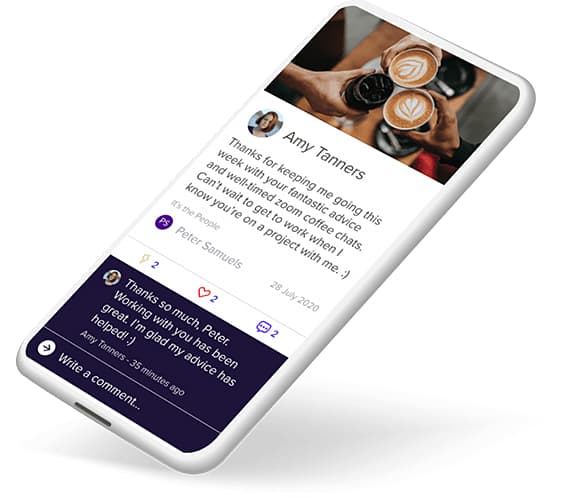More than half (57%) of employees say feeling recognised would reduce the likelihood that they would take a call from a headhunter, according to the latest State of Recognition Report from Achievers Workforce Institute, the research and insights arm of Achievers, the global leader in employee voice and recognition solutions.
The ongoing “Great Resignation” is a symptom of the struggle employers face in adapting to the new world of work. The research shows that employees are not willing to compromise on job elements such as work-life integration, career progression, and a sense of belonging and fulfilment. They increasingly feel empowered (or entitled) to a culture, benefits, and perks that are the right fit for their desired lifestyle.
In response, employers need to go above and beyond to create a brand that attracts and an environment that retains. HR leaders who want to compete for talent must look to the data, which clearly shows that recognition can drive commitment, boost engagement and retention, and drive productivity while also building connections and making employees feel welcomed and included.
Praise over Price
The study found that feeling recognised more positively impacts employee engagement, productivity and advocacy than a fair salary. Meaningfulness was the top factor in ensuring that employees feel recognised and building a culture of recognition. Two-thirds (64%) say they would prefer to receive more meaningful recognition, as opposed to more frequent recognition.
But what makes a recognition meaningful? According to respondents, the top three factors are:
-
About something specific that I did
-
About me as an individual or about something I value
-
About the way in which I made a difference to the person who sent me the recognition
Employers miss the target on training
Training is a crucial way to introduce and reinforce recognition best practices. However, there is a disconnect between HR and employees with 90% of HR leaders saying they offer such training, compared to just 41% of employees saying they have received training.
“Business leaders in this new era of work are facing new and sustained challenges, from driving retention to adapting to hybrid ways of working and everything in-between. Recognition is proving to be the best lever to pull to influence engagement, productivity, and advocacy,” says Achievers Chief Workforce Scientist Natalie Baumgartner. “An optimised programme is critical to building a culture of recognition that starts at the top with people leaders and is supported and reinforced at every level. Recognition is a powerhouse engagement tool on many levels, and a strong culture of recognition can help retain talent by competing beyond salary and standard benefits and perks.”
How to drive results with recognition
Organisations with an optimised recognition platform report higher recognition rates and better business outcomes. There are four best practices to make the most of an employee recognition platform:
-
Focus on both quality and quantity
This research demonstrates that recognition must be both frequent and meaningful. Organisations must focus on both to move the needle on engagement and retention.
-
Recognise in the flow of work
Most employees want to recognise in the flow of work. An effective platform integrates with the HRIS, as well as the software employees use every day such as Teams and Outlook.
-
Proactively communicate to improve participation
An effective programme includes ongoing training and communication to promote participation.
-
Measure metrics that matter to the business
Tracking and monitoring programme usage is a helpful indicator of a recognition programme, but to demonstrate sustained impact to the business it’s necessary to capture and measure outcome metrics beyond the programme, such as engagement and retention.









